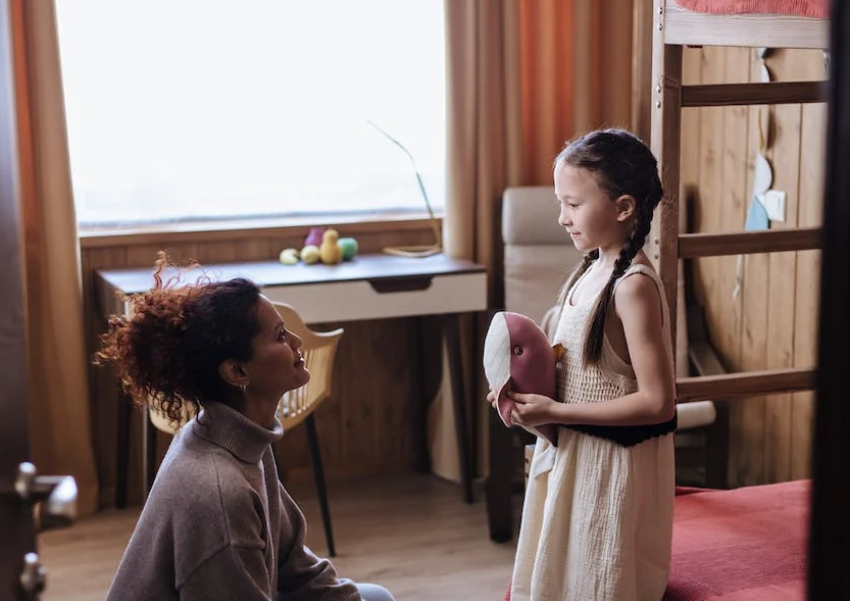
Raising children is the most challenging and rewarding job a parent can undertake. For most parents, raising kind,happy and healthy children is the goal. But, this is not always easy when you have to parent in a rapidly changing society. As attitudes about different identities and sexualities change and the topic becomes more mainstream, parents find themselves having to talk to their children about Lesbian, Gay, Bisexual, Transgender, Queer and Intersex (LGBTQI) matters.
THE FACTS
According to a survey conducted by The Other Foundation, just over half a million South Africans identify as gender nonconforming. The survey, titled Progressive Prudes: A survey of attitudes towards homosexuality and gender nonconformity in South Africa, found that 530 000 South Africans identify as gay, lesbian, bisexual or other. But, learning that your child may not be heterosexual or having a dialogue about LGBTQI issues can be challenging if you don’t know how to approach the subject. ‘We know that our families follow traditions and customs, and that these customs are not inclusive or tolerant,’ says Happy Phaleng, spokesperson for OUT, a Pretoria-based organisation that supports LGBTQI communities.
Happy adds that fear could also come from the stigma in communities. This stigma is not unwarranted given the fact that the survey found that 7 out of 10 South Africans found homosexual sex and breaking gender norms to be ‘wrong’ and ‘disgusting’. Additionally, research released by Love Not Hate in 2016, shows that the lived reality of many LGBTQI people in South Africa is not as rosy as it appears.
This is despite the fact that South Africa was fifth in the world and first on the continent to legalise same-sex marriages 12 years ago. Love Not Hate is a nationwide multi-partner initiative addressing violence against LGBTQI people. Many LGBTQI people are still the victims of strong homoprejudice. The research also found that 14% of Gauteng residents supported violence against gay and lesbian people.
UNDERSTANDING YOUR CHILD
Yamkela Mdaka, a 24-year-old writer and musician, says there wasn’t a specific moment when he realised that he was gay. However, he did notice that he was different from other boys because of what people would say to him growing up, and the fact that he was always with girls. ‘During my primary and high school years, people always pointed out that I was gay, and it used to make me angry. I guess I knew then because it used to upset me a lot,’ he says. Yamkela says other family members would try and get him to confirm their suspicions. ‘My aunt used to tell me that her friends were saying that I’m gay,’ he explains.By age 14, Yamkela was sure of his sexuality. Despite this, he felt a lot of shame about coming out to his mother.
DETERMINING SEXUALITY
There are many things that can determine a person’s sexuality. According to the American Psychological Association, scientists have suggested that genetics, social and cultural influences as well as hormones may play a role. However, they have also concluded that nature and nurture both play complex roles as most people experience little or no sense of choice about their sexual orientation. There is no definitive way to know if your child is homosexual until they tell you.As a parent, the best thing you can do is create an environment that is conducive to an open and healthy dialogue.
WHEN TO TALK TO YOUR CHILD
According to Warren Thompson, a social worker and psychologist, the best time to talk to your child is generally around the age where puberty kicks in or when their schools begin to discuss sexual education. He adds that the foundation should be set by the parents and environment where seeing LGBTQI couples is a norm. “Your reaction tells them if you are open to speaking and understanding.” Also, when a child asks a question related to LGBTQI issues,it is important to be age-appropriate in your response in order to fill in the knowledge gap that they might have.
For younger kids, showing a positive attitude to television shows depicting LGBTQI characters will allow the topic to be more openly discussed with you. Bulelwa Dayimani (33), a young mother of three children aged from three to eight, says her approach in raising them is to create a safe space where they can have an open dialogue about anything. ‘I don’t start the conversation. They come to me with questions. When they see a gay couple, we have an open and honest discussion about what they think and how they feel,’ she says.
WHEN YOUR CHILD COMES OUT
Finding out that your child does not conform to society gender norms affects your imagined future of what their life may look like. ‘As a parent, you first have to accept the ending of that possibility before imagining the new scenarios open to their future, which can be just as or even more fulfilling,’ explains Warren.
He suggests that you keep loving your child, including their sexuality, in a sensitive and respectful way. ‘Remember that this is one part of them, so don’t make it all about their sexuality,’ he says. You should not try to change your children as this might do more harm than good. For many parents, religion can be a stumbling block when it comes to accepting their children’s non-traditional sexual orientation. South Africa is still a deeply religious country that has conservative ideas about how things should be. Dumisani Dube, director of Dialogues for Change and chairperson of the Holy Trinity Catholic Church’s LGBTQI Ministry, says the ministry sees a number of parents who are concerned about the religious implications of having lesbian or gay children. ‘We tell them that God created everybody, and in His image. We preach about love and the importance of family and not discriminating against anybody, regardless of their sexual orientation, race or gender,’ he says.
THE IMPORTANCE OF PARENTAL ACCEPTANCE
Yamkela says his mother’s acceptance and love gave him the courage to go out into the world with new-found confidence and a sense of security about who he is. ‘That validation and love is what carried me through most of my adult life as a gay man. It might not be a mother for someone else, but that validation is important,’ he says. Love and support is key in protecting your child from the abuse they might face in a homophobic society.
‘Your child would have spent years trying to understand their own sexuality and themselves. So, it is not possible to expect the parent to understand the complexities of their child’s sexual orientation all in one day. The important thing is to show them that you are trying to understand,’ concludes Warren.




